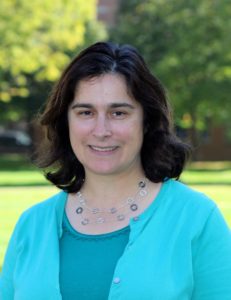
An expert in potato pathogens is the new head of Colorado State University’s Department of Bioagricultural Sciences and Pest Management, or BSPM, housed in the College of Agricultural Sciences. Amy Charkowski spent more than 15 years as a professor at the University of Wisconsin-Madison and served as a resource for that state’s potato industry before coming to CSU.
Charkowski’s research has provided significant insights into enhancing disease resistance in potato breeding. She served as director of the highly-regarded Wisconsin Seed Potato Certification Program, which includes a tissue culture laboratory, an early generation seed potato farm, and a regulatory program. In addition, her research team developed a participatory potato trialing program for organic potato farmers in the Midwest, with the goal of helping farmers from all sectors access healthy seed potatoes.
‘Outstanding academic research’
“Amy blends outstanding academic research with a strong record of mentoring graduate students and junior faculty, and leading a successful research group as well as working with individual farmers and industry groups,” said Ajay Menon, dean of the College of Agricultural Sciences. “She will bring new ideas and thoughtful perspectives for growing the impact and influence of the department’s work.”
BSPM had been led by Professor Tom Holtzer, who was department head for nearly 30 years before moving into an administrative role in the college before retiring in October 2016. Professor Lou Bjostad served as interim head while the search for Holtzer’s replacement was underway.
‘Important new insights’
“I am happy to join the department and work alongside of the many talented researchers and teachers who are developing a breadth of exciting topics from phytobiomes to insect ecology to how weed genomes respond to chemical stresses,” said Charkowski. “I believe that faculty and students will make interesting connections between these areas leading to important new insights in how to sustainably produce food, fuel, and fiber. Colorado and our university have the potential to be the center of an agricultural renaissance because companies in Colorado and the university are investing in new data-driven agricultural technologies, much of which is supported by our research.”